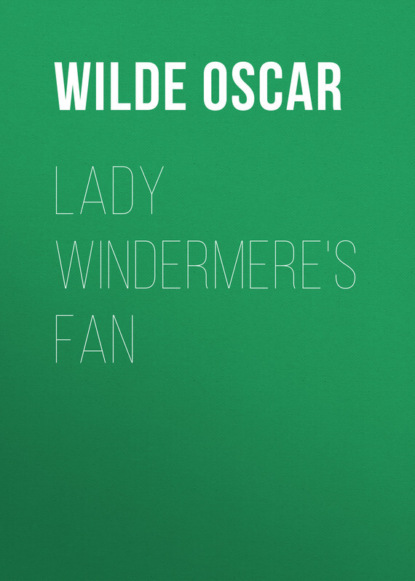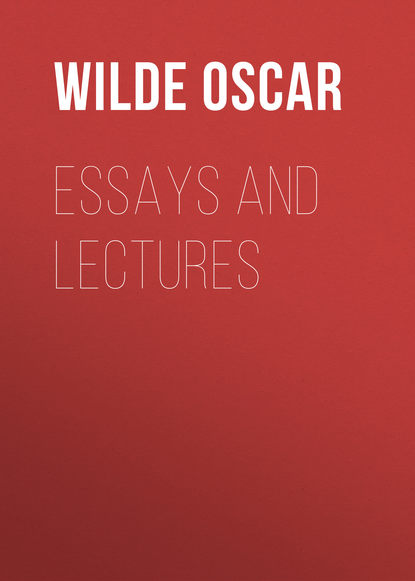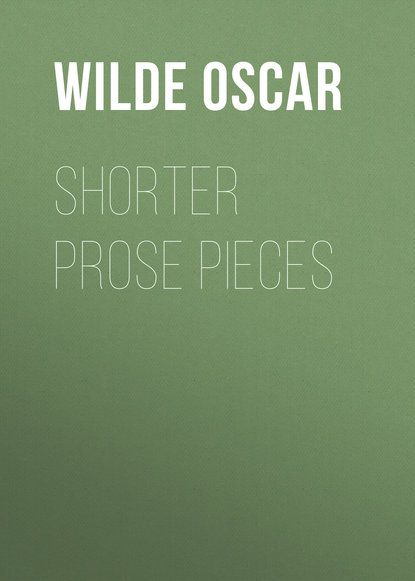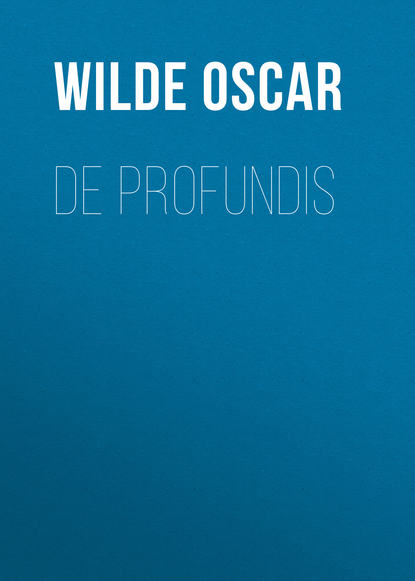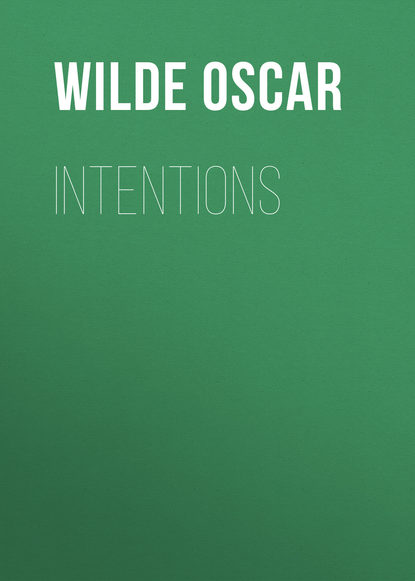 Полная версия
Полная версия- Рейтинг Литрес:5
Полная версия:
Оскар Уайльд Miscellanies
- + Увеличить шрифт
- - Уменьшить шрифт

Oscar Wilde
Miscellanies
DEDICATION: TO WALTER LEDGER
Since these volumes are sure of a place in your marvellous library I trust that with your unrivalled knowledge of the various editions of Wilde you may not detect any grievous error whether of taste or type, of omission or commission. But should you do so you must blame the editor, and not those who so patiently assisted him, the proof readers, the printers, or the publishers. Some day, however, I look forward to your bibliography of the author, in which you will be at liberty to criticise my capacity for anything except regard and friendship for yourself. —Sincerely yours,
ROBERT ROSS
May 25, 1908.
INTRODUCTION
The concluding volume of any collected edition is unavoidably fragmentary and desultory. And if this particular volume is no exception to a general tendency, it presents points of view in the author’s literary career which may have escaped his greatest admirers and detractors. The wide range of his knowledge and interests is more apparent than in some of his finished work.
What I believed to be only the fragment of an essay on Historical Criticism was already in the press, when accidentally I came across the remaining portions, in Wilde’s own handwriting; it is now complete though unhappily divided in this edition.1 Any doubt as to its authenticity, quite apart from the calligraphy, would vanish on reading such a characteristic passage as the following: – ‘.. For, it was in vain that the middle ages strove to guard the buried spirit of progress. When the dawn of the Greek spirit arose, the sepulchre was empty, the grave clothes laid aside. Humanity had risen from the dead.’ It was only Wilde who could contrive a literary conceit of that description; but readers will observe with different feelings, according to their temperament, that he never followed up the particular trend of thought developed in the essay. It is indeed more the work of the Berkeley Gold Medallist at Dublin, or the brilliant young Magdalen Demy than of the dramatist who was to write Salomé. The composition belongs to his Oxford days when he was the unsuccessful competitor for the Chancellor’s English Essay Prize. Perhaps Magdalen, which has never forgiven herself for nurturing the author of Ravenna, may be felicitated on having escaped the further intolerable honour that she might have suffered by seeing crowned again with paltry academic parsley the most highly gifted of all her children in the last century. Compared with the crude criticism on The Grosvenor Gallery (one of the earliest of Wilde’s published prose writings), Historical Criticism is singularly advanced and mature. Apart from his mere scholarship Wilde developed his literary and dramatic talent slowly. He told me that he was never regarded as a particularly precocious or clever youth. Indeed many old family friends and contemporary journalists maintain sturdily that the talent of his elder brother William was much more remarkable. In this opinion they are fortified, appropriately enough, by the late Clement Scott. I record this interesting view because it symbolises the familiar phenomenon that those nearest the mountain cannot appreciate its height.
The exiguous fragment of La Sainte Courtisane is the next unpublished work of importance. At the time of Wilde’s trial the nearly completed drama was entrusted to Mrs. Leverson, who in 1897 went to Paris on purpose to restore it to the author. Wilde immediately left the manuscript in a cab. A few days later he laughingly informed me of the loss, and added that a cab was a very proper place for it. I have explained elsewhere that he looked on his plays with disdain in his last years, though he was always full of schemes for writing others. All my attempts to recover the lost work failed. The passages here reprinted are from some odd leaves of a first draft. The play is of course not unlike Salome, though it was written in English. It expanded Wilde’s favourite theory that when you convert some one to an idea, you lose your faith in it; the same motive runs through Mr. W. H. Honorius the hermit, so far as I recollect the story, falls in love with the courtesan who has come to tempt him, and he reveals to her the secret of the Love of God. She immediately becomes a Christian, and is murdered by robbers; Honorius the hermit goes back to Alexandria to pursue a life of pleasure. Two other similar plays Wilde invented in prison, Ahab and Isabel and Pharaoh; he would never write them down, though often importuned to do so. Pharaoh was intensely dramatic and perhaps more original than any of the group. None of these works must be confused with the manuscripts stolen from 16 Tite Street in 1895 – namely the enlarged version of Mr. W. H., the completed form of A Florentine Tragedy, and The Duchess of Padua (which existing in a prompt copy was of less importance than the others); nor with The Cardinal of Arragon, the manuscript of which I never saw. I scarcely think it ever existed, though Wilde used to recite proposed passages for it.
In regard to printing the lectures I have felt some diffidence: the majority of them were delivered from notes, and the same lectures were repeated in different towns in England and America. The reports of them in the papers are never trustworthy; they are often grotesque travesties, like the reports of after-dinner speeches in the London press of today. I have included only those lectures of which I possess or could obtain manuscript.
The aim of this edition has been completeness; and it is complete so far as human effort can make it; but besides the lost manuscripts there must be buried in the contemporary press many anonymous reviews which I have failed to identify. The remaining contents of this book do not call for further comment, other than a reminder that Wilde would hardly have consented to their republication. But owing to the number of anonymous works wrongly attributed to him, chiefly in America, and spurious works published in his name, I found it necessary to violate the laws of friendship by rejecting nothing I knew to be authentic. It will be seen on reference to the letters on The Ethics of Journalism that Wilde’s name appearing at the end of poems and articles was not always a proof of authenticity even in his lifetime.
Of the few letters Wilde wrote to the press, those addressed to Whistler I have included with greater misgiving than anything else in this volume. They do not seem to me more amusing than those to which they were the intended rejoinders. But the dates are significant. Wilde was at one time always accused of plagiarising his ideas and his epigrams from Whistler, especially those with which he decorated his lectures, the accusation being brought by Whistler himself and his various disciples. It should be noted that all the works by which Wilde is known throughout Europe were written after the two friends quarrelled. That Wilde derived a great deal from the older man goes without saying, just as he derived much in a greater degree from Pater, Ruskin, Arnold and Burne-Jones. Yet the tedious attempt to recognise in every jest of his some original by Whistler induces the criticism that it seems a pity the great painter did not get them off on the public before he was forestalled. Reluctance from an appeal to publicity was never a weakness in either of the men. Some of Wilde’s more frequently quoted sayings were made at the Old Bailey (though their provenance is often forgotten) or on his death-bed.
As a matter of fact, the genius of the two men was entirely different. Wilde was a humourist and a humanist before everything; and his wittiest jests have neither the relentlessness nor the keenness characterising those of the clever American artist. Again, Whistler could no more have obtained the Berkeley Gold Medal for Greek, nor have written The Importance of Being Earnest, nor The Soul of Man, than Wilde, even if equipped as a painter, could ever have evinced that superb restraint distinguishing the portraits of ‘Miss Alexander,’ ‘Carlyle,’ and other masterpieces. Wilde, though it is not generally known, was something of a draughtsman in his youth. I possess several of his drawings.
A complete bibliography including all the foreign translations and American piracies would make a book of itself much larger than the present one. In order that Wilde collectors (and there are many, I believe) may know the authorised editions and authentic writings from the spurious, Mr. Stuart Mason, whose work on this edition I have already acknowledged, has supplied a list which contains every genuine and authorised English edition. This of course does not preclude the chance that some of the American editions are authorised, and that some of Wilde’s genuine works even are included in the pirated editions.
I am indebted to the Editors and Proprietors of the Queen for leave to reproduce the article on ‘English Poetesses’; to the Editor and Proprietors of the Sunday Times for the article entitled ‘Art at Willis’s Rooms’; and to Mr. William Waldorf Astor for those from the Pall Mall Gazette.
ROBERT ROSS
THE TOMB OF KEATS
(Irish Monthly, July 1877.)
As one enters Rome from the Via Ostiensis by the Porta San Paolo, the first object that meets the eye is a marble pyramid which stands close at hand on the left.
There are many Egyptian obelisks in Rome – tall, snakelike spires of red sandstone, mottled with strange writings, which remind us of the pillars of flame which led the children of Israel through the desert away from the land of the Pharaohs; but more wonderful than these to look upon is this gaunt, wedge-shaped pyramid standing here in this Italian city, unshattered amid the ruins and wrecks of time, looking older than the Eternal City itself, like terrible impassiveness turned to stone. And so in the Middle Ages men supposed this to be the sepulchre of Remus, who was slain by his own brother at the founding of the city, so ancient and mysterious it appears; but we have now, perhaps unfortunately, more accurate information about it, and know that it is the tomb of one Caius Cestius, a Roman gentleman of small note, who died about 30 B.C.
Yet though we cannot care much for the dead man who lies in lonely state beneath it, and who is only known to the world through his sepulchre, still this pyramid will be ever dear to the eyes of all English-speaking people, because at evening its shadows fall on the tomb of one who walks with Spenser, and Shakespeare, and Byron, and Shelley, and Elizabeth Barrett Browning in the great procession of the sweet singers of England.
For at its foot there is a green, sunny slope, known as the Old Protestant Cemetery, and on this a common-looking grave, which bears the following inscription:
This grave contains all that was mortal of a young English poet, who on his deathbed, in the bitterness of his heart, desired these words to be engraven on his tombstone: HERE LIES ONE WHOSE NAME WAS WRIT IN WATER. February 24, 1821.
And the name of the young English poet is John Keats.
Lord Houghton calls this cemetery ‘one of the most beautiful spots on which the eye and heart of man can rest,’ and Shelley speaks of it as making one ‘in love with death, to think that one should be buried in so sweet a place’; and indeed when I saw the violets and the daisies and the poppies that overgrow the tomb, I remembered how the dead poet had once told his friend that he thought the ‘intensest pleasure he had received in life was in watching the growth of flowers,’ and how another time, after lying a while quite still, he murmured in some strange prescience of early death, ‘I feel the flowers growing over me.’
But this time-worn stone and these wildflowers are but poor memorials2 of one so great as Keats; most of all, too, in this city of Rome, which pays such honour to her dead; where popes, and emperors, and saints, and cardinals lie hidden in ‘porphyry wombs,’ or couched in baths of jasper and chalcedony and malachite, ablaze with precious stones and metals, and tended with continual service. For very noble is the site, and worthy of a noble monument; behind looms the grey pyramid, symbol of the world’s age, and filled with memories of the sphinx, and the lotus leaf, and the glories of old Nile; in front is the Monte Testaccio, built, it is said, with the broken fragments of the vessels in which all the nations of the East and the West brought their tribute to Rome; and a little distance off, along the slope of the hill under the Aurelian wall, some tall gaunt cypresses rise, like burnt-out funeral torches, to mark the spot where Shelley’s heart (that ‘heart of hearts’!) lies in the earth; and, above all, the soil on which we tread is very Rome!
As I stood beside the mean grave of this divine boy, I thought of him as of a Priest of Beauty slain before his time; and the vision of Guido’s St. Sebastian came before my eyes as I saw him at Genoa, a lovely brown boy, with crisp, clustering hair and red lips, bound by his evil enemies to a tree, and though pierced by arrows, raising his eyes with divine, impassioned gaze towards the Eternal Beauty of the opening heavens. And thus my thoughts shaped themselves to rhyme:
HEU MISERANDE PUERRid of the world’s injustice and its pain,He rests at last beneath God’s veil of blue;Taken from life while life and love were newThe youngest of the martyrs here is lain,Fair as Sebastian and as foully slain.No cypress shades his grave, nor funeral yew,But red-lipped daisies, violets drenched with dew,And sleepy poppies, catch the evening rain.O proudest heart that broke for misery!O saddest poet that the world hath seen!O sweetest singer of the English land!Thy name was writ in water on the sand,But our tears shall keep thy memory green,And make it flourish like a Basil-tree.Borne, 1877.Note. – A later version of this sonnet, under the title of ‘The Grave of Keats,’ is given in the Poems, page 157.
THE GROSVENOR GALLERY, 1877
(Dublin University Magazine, July 1877.)
That ‘Art is long and life is short’ is a truth which every one feels, or ought to feel; yet surely those who were in London last May, and had in one week the opportunities of hearing Rubenstein play the Sonata Impassionata, of seeing Wagner conduct the Spinning-Wheel Chorus from the Flying Dutchman, and of studying art at the Grosvenor Gallery, have very little to complain of as regards human existence and art-pleasures.
Descriptions of music are generally, perhaps, more or less failures, for music is a matter of individual feeling, and the beauties and lessons that one draws from hearing lovely sounds are mainly personal, and depend to a large extent on one’s own state of mind and culture. So leaving Rubenstein and Wagner to be celebrated by Franz Hüffer, or Mr. Haweis, or any other of our picturesque writers on music, I will describe some of the pictures now being shown in the Grosvenor Gallery.
The origin of this Gallery is as follows: About a year ago the idea occurred to Sir Coutts Lindsay of building a public gallery, in which, untrammelled by the difficulties or meannesses of ‘Hanging Committees,’ he could exhibit to the lovers of art the works of certain great living artists side by side: a gallery in which the student would not have to struggle through an endless monotony of mediocre works in order to reach what was worth looking at; one in which the people of England could have the opportunity of judging of the merits of at least one great master of painting, whose pictures had been kept from public exhibition by the jealousy and ignorance of rival artists. Accordingly, last May, in New Bond Street, the Grosvenor Gallery was opened to the public.
As far as the Gallery itself is concerned, there are only three rooms, so there is no fear of our getting that terrible weariness of mind and eye which comes on after the ‘Forced Marches’ through ordinary picture galleries. The walls are hung with scarlet damask above a dado of dull green and gold; there are luxurious velvet couches, beautiful flowers and plants, tables of gilded and inlaid marbles, covered with Japanese china and the latest ‘Minton,’ globes of ‘rainbow glass’ like large soap-bubbles, and, in fine, everything in decoration that is lovely to look on, and in harmony with the surrounding works of art.
Burne-Jones and Holman Hunt are probably the greatest masters of colour that we have ever had in England, with the single exception of Turner, but their styles differ widely. To draw a rough distinction, Holman Hunt studies and reproduces the colours of natural objects, and deals with historical subjects, or scenes of real life, mostly from the East, touched occasionally with a certain fancifulness, as in the Shadow of the Cross. Burne-Jones, on the contrary, is a dreamer in the land of mythology, a seer of fairy visions, a symbolical painter. He is an imaginative colourist too, knowing that all colour is no mere delightful quality of natural things, but a ‘spirit upon them by which they become expressive to the spirit,’ as Mr. Pater says. Watts’s power, on the other hand, lies in his great originative and imaginative genius, and he reminds us of Æschylus or Michael Angelo in the startling vividness of his conceptions. Although these three painters differ much in aim and in result, they yet are one in their faith, and love, and reverence, the three golden keys to the gate of the House Beautiful.
On entering the West Gallery the first picture that meets the eye is Mr. Watts’s Love and Death, a large painting, representing a marble doorway, all overgrown with white-starred jasmine and sweet brier-rose. Death, a giant form, veiled in grey draperies, is passing in with inevitable and mysterious power, breaking through all the flowers. One foot is already on the threshold, and one relentless hand is extended, while Love, a beautiful boy with lithe brown limbs and rainbow-coloured wings, all shrinking like a crumpled leaf, is trying, with vain hands, to bar the entrance. A little dove, undisturbed by the agony of the terrible conflict, waits patiently at the foot of the steps for her playmate; but will wait in vain, for though the face of Death is hidden from us, yet we can see from the terror in the boy’s eyes and quivering lips, that, Medusa-like, this grey phantom turns all it looks upon to stone; and the wings of Love are rent and crushed. Except on the ceiling of the Sistine Chapel in Rome, there are perhaps few paintings to compare with this in intensity of strength and in marvel of conception. It is worthy to rank with Michael Angelo’s God Dividing the Light from the Darkness.
Next to it are hung five pictures by Millais. Three of them are portraits of the three daughters of the Duke of Westminster, all in white dresses, with white hats and feathers; the delicacy of the colour being rather injured by the red damask background. These pictures do not possess any particular merit beyond that of being extremely good likenesses, especially the one of the Marchioness of Ormonde. Over them is hung a picture of a seamstress, pale and vacant-looking, with eyes red from tears and long watchings in the night, hemming a shirt. It is meant to illustrate Hood’s familiar poem. As we look on it, a terrible contrast strikes us between this miserable pauper-seamstress and the three beautiful daughters of the richest duke in the world, which breaks through any artistic reveries by its awful vividness.
The fifth picture is a profile head of a young man with delicate aquiline nose, thoughtful oval face, and artistic, abstracted air, which will be easily recognised as a portrait of Lord Ronald Gower, who is himself known as an artist and sculptor. But no one would discern in these five pictures the genius that painted the Home at Bethlehem and the portrait of John Ruskin which is at Oxford.
Then come eight pictures by Alma Tadema, good examples of that accurate drawing of inanimate objects which makes his pictures so real from an antiquarian point of view, and of the sweet subtlety of colouring which gives to them a magic all their own. One represents some Roman girls bathing in a marble tank, and the colour of the limbs in the water is very perfect indeed; a dainty attendant is tripping down a flight of steps with a bundle of towels, and in the centre a great green sphinx in bronze throws forth a shower of sparkling water for a very pretty laughing girl, who stoops gleefully beneath it. There is a delightful sense of coolness about the picture, and one can almost imagine that one hears the splash of water, and the girls’ chatter. It is wonderful what a world of atmosphere and reality may be condensed into a very small space, for this picture is only about eleven by two and a half inches.
The most ambitious of these pictures is one of Phidias Showing the Frieze of the Parthenon to his Friends. We are supposed to be on a high scaffolding level with the frieze, and the effect of great height produced by glimpses of light between the planking of the floor is very cleverly managed. But there is a want of individuality among the connoisseurs clustered round Phidias, and the frieze itself is very inaccurately coloured. The Greek boys who are riding and leading the horses are painted Egyptian red, and the whole design is done in this red, dark blue, and black. This sombre colouring is un-Greek; the figures of these boys were undoubtedly tinted with flesh colour, like the ordinary Greek statues, and the whole tone of the colouring of the original frieze was brilliant and light; while one of its chief beauties, the reins and accoutrements of burnished metal, is quite omitted. This painter is more at home in the Greco-Roman art of the Empire and later Republic than he is in the art of the Periclean age.
The most remarkable of Mr. Richmond’s pictures exhibited here is his Electra at the Tomb of Agamemnon– a very magnificent subject, to which, however, justice is not done. Electra and her handmaidens are grouped gracefully around the tomb of the murdered King; but there is a want of humanity in the scene: there is no trace of that passionate Asiatic mourning for the dead to which the Greek women were so prone, and which Æschylus describes with such intensity; nor would Greek women have come to pour libations to the dead in such bright-coloured dresses as Mr. Richmond has given them; clearly this artist has not studied Æschylus’ play of the Choëphori, in which there is an elaborate and pathetic account of this scene. The tall, twisted tree-stems, however, that form the background are fine and original in effect, and Mr. Richmond has caught exactly that peculiar opal-blue of the sky which is so remarkable in Greece; the purple orchids too, and daffodil and narcissi that are in the foreground are all flowers which I have myself seen at Argos.
Sir Coutts Lindsay sends a life-size portrait of his wife, holding a violin, which has some good points of colour and position, and four other pictures, including an exquisitely simple and quaint little picture of the Dower House at Balcarres, and a Daphne with rather questionable flesh-painting, and in whom we miss the breathlessness of flight.
I saw the blush come o’er her like a rose;The half-reluctant crimson comes and goes;Her glowing limbs make pause, and she is stayedWondering the issue of the words she prayed.It is a great pity that Holman Hunt is not represented by any of his really great works, such as the Finding of Christ in the Temple, or Isabella Mourning over the Pot of Basil, both of which are fair samples of his powers. Four pictures of his are shown here: a little Italian child, painted with great love and sweetness, two street scenes in Cairo full of rich Oriental colouring, and a wonderful work called the Afterglow in Egypt. It represents a tall swarthy Egyptian woman, in a robe of dark and light blue, carrying a green jar on her shoulder, and a sheaf of grain on her head; around her comes fluttering a flock of beautiful doves of all colours, eager to be fed. Behind is a wide flat river, and across the river a stretch of ripe corn, through which a gaunt camel is being driven; the sun has set, and from the west comes a great wave of red light like wine poured out on the land, yet not crimson, as we see the Afterglow in Northern Europe, but a rich pink like that of a rose. As a study of colour it is superb, but it is difficult to feel a human interest in this Egyptian peasant.

